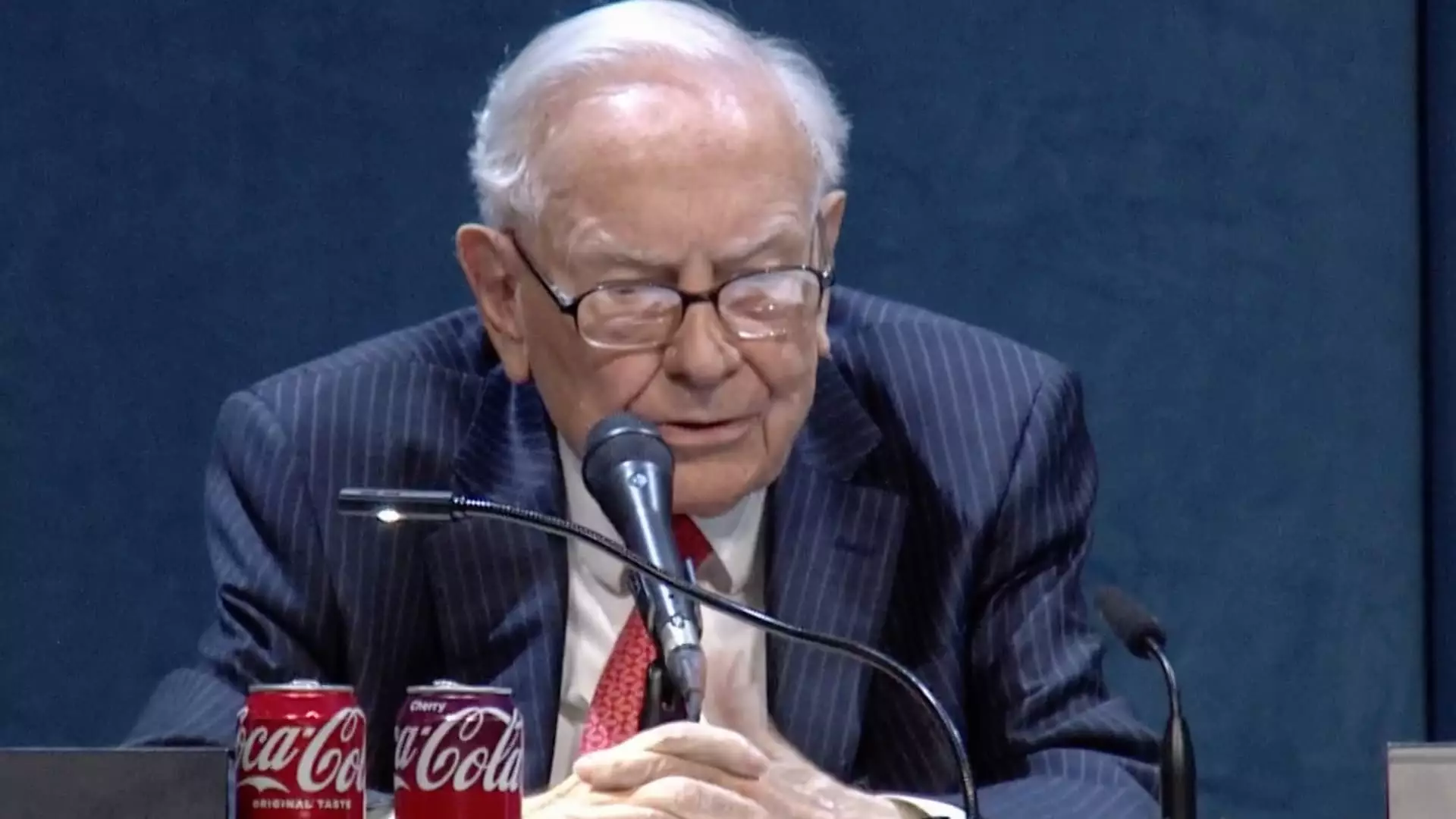Warren Buffett’s decision to step down as CEO of Berkshire Hathaway was anticipated with a mix of hope and trepidation. While many believed that the stock would soar once the Oracle finally passed the torch, reality has proven otherwise. Since Buffett’s announcement, Berkshire’s stock value has stumbled, plunging more than 10%—underperforming the S&P 500 by a staggering 15 percentage points. This decline debunks the notion of a perpetual Buffett premium, indicating that the market isn’t merely reflecting anxiety but rather a profound reassessment of what Berkshire Hathaway might mean without its visionary leader.
Understanding Investor Sentiment
Seasoned investors have long revered Buffett for his astute capital allocation and unparalleled wisdom. David Kass, a finance professor and Berkshire shareholder, voiced a sentiment that many investors share: surprise at the magnitude of Berkshire’s decline. The transition of leadership, while planned and structured, has unveiled a layer of investor doubt that could extend further, potentially reaching a 20% drop. It’s a reminder that even iconic firms are vulnerable to the psychological impacts of significant leadership changes. The withdrawal from reliance on someone as established as Buffett is challenging investors’ long-held faith in the company’s stability.
Buffett’s Departure: A Double-Edged Sword
Buffett acknowledged that stepping down stemmed from confronting the tangible effects of aging. His assurance in successor Greg Abel’s ability to uphold the company’s legacy and culture remains firm, yet this transition feels perilous. Can Abel capture the essence of what Buffett has built? The answer is uncertain, leading many shareholders to contemplate their next move. The broader concern arises from Berkshire’s recent dismal financial performance, including a 14% fall in operating earnings to $9.64 billion in the first quarter. These numbers urge investors to reflect on the intrinsic value of what they own—could Berkshire’s once-unstoppable momentum be cooling?
Algorithmic Trading and Market Reactions
Moreover, the rapid market reaction post-announcement raises questions about the influence of algorithmic trading on stock values. Analyst Kevin Heal observed that initial tumbles corresponded to the Buffett premium. Algorithms process massive amounts of information quickly, and if they perceive instability, they can trigger a sell-off that feeds into themselves. This self-fulfilling prophecy creates an unstable environment for managers and stakeholders, further wreaking havoc on stock performance.
The Impending Nature of Uncertainty
Meyer Shields, another seasoned analyst, speculated that there’s still a 5% to 10% premium remaining in Berkshire’s stock price due to lingering trust in Buffett’s continued oversight as chairman. However, this perceived security is expected to erode post his departure. The specter of decline looms larger, especially as Berkshire struggles to stabilize from its historical highs earlier this year, right before its annual meeting—a pivotal moment now shadowed by uncertainty.
As the stock grapples with identity without its legendary leader, the future remains an open question filled with the potential for growth or further decline. While corporations can endure even through leadership changes, Berkshire’s path—a company built on the very essence of Buffett’s savvy investment strategies—appears increasingly uncertain.

